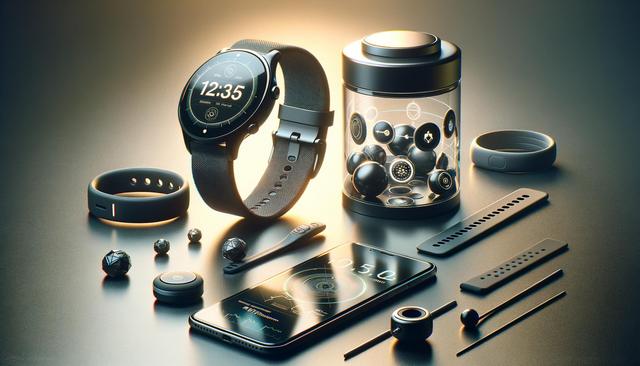Evolution of Smart Wearables
The journey of smart wearables began with basic fitness trackers that counted steps and monitored sleep patterns. Over the years, these devices have transformed into multifunctional tools capable of delivering a wide range of health and lifestyle insights. With advancements in sensor technology, connectivity, and miniaturization, today’s devices offer a more comprehensive understanding of our daily routines. This evolution has opened up new dimensions for personal wellness and productivity.
Modern wearables are not just about tracking; they are about interaction and personalization. Many devices now offer features such as voice command integration, contactless payments, and notifications, making them an extension of our smartphones. These features enhance convenience and accessibility, which is why smart wearables are becoming a staple in everyday life, not just fitness tools.
Additionally, the rise of open APIs and app ecosystems allows developers to create third-party applications that expand the functionality of wearables. This flexibility makes them adaptable to a variety of user needs, from managing chronic health conditions to tracking work productivity.
Health Monitoring and Preventive Care
One of the most impactful applications of smart wearables is in health monitoring. These devices can track a range of biometric data, including heart rate, blood oxygen levels, body temperature, and even stress indicators. This ongoing data collection supports both users and healthcare professionals in making informed decisions about health and wellness.
Wearables contribute to preventive care by alerting users to irregularities before they become serious issues. For example, a sudden change in resting heart rate or sleep patterns might prompt a medical consultation, potentially catching problems early. This proactive approach empowers individuals to take control of their health and can reduce long-term healthcare costs.
Some common health-related features include:
- Continuous heart rate monitoring
- Sleep tracking and analysis
- Activity and movement reminders
- Hydration and medication alerts
These capabilities are especially valuable for individuals managing chronic conditions, as they provide consistent and detailed records that can be shared with healthcare providers for better diagnosis and treatment planning.
Improving Lifestyle and Productivity
Beyond health, smart wearables play a significant role in enhancing lifestyle and productivity. Features like calendar integration, task tracking, and real-time notifications help users stay organized and focused. Many individuals find that wearable technology supports better time management and goal setting.
Smart wearables also promote active lifestyles by encouraging users to move regularly and meet personal fitness goals. Gamification elements, such as achievement badges or weekly challenges, keep users engaged and motivated. This behavior reinforcement can lead to sustained healthy habits over time.
In the workplace, wearables can contribute to improved ergonomics and stress management. Devices that alert users when they have been sedentary too long or when their stress levels are elevated can lead to healthier work patterns and increased productivity. Some organizations even integrate wearables into wellness programs to foster a healthier workforce.
Data Privacy and Ethical Considerations
As smart wearables collect vast amounts of personal data, concerns around privacy and security have become increasingly important. Users must be aware of how their data is stored, processed, and shared. Transparent privacy policies and robust security measures are essential for building trust in wearable technologies.
Manufacturers and app developers have a responsibility to protect user data through encryption, secure data storage, and clear consent mechanisms. Users, in turn, should be cautious about which permissions they grant and regularly review their privacy settings.
Ethical considerations also come into play when wearable data is used by employers, insurers, or other third parties. Questions around data ownership and potential misuse must be addressed to ensure that wearable technology benefits users without compromising their rights or freedoms.
The Road Ahead for Smart Wearables
The future of smart wearables is bright, with ongoing innovation expected to expand their capabilities even further. We can anticipate more sophisticated health tracking, better integration with other smart devices, and enhanced user customization. As artificial intelligence and machine learning become more integrated, wearables will likely deliver even more accurate and personalized insights.
Emerging trends include:
- Non-invasive blood glucose monitoring
- Advanced mental wellness tracking
- Integration with smart home ecosystems
- More sustainable and eco-friendly designs
These developments will continue to drive user engagement and broaden the appeal of smart wearables across different demographics and lifestyles. As the technology becomes more accessible and affordable, its impact on daily tracking and personal optimization will grow, making it an essential part of modern living.







